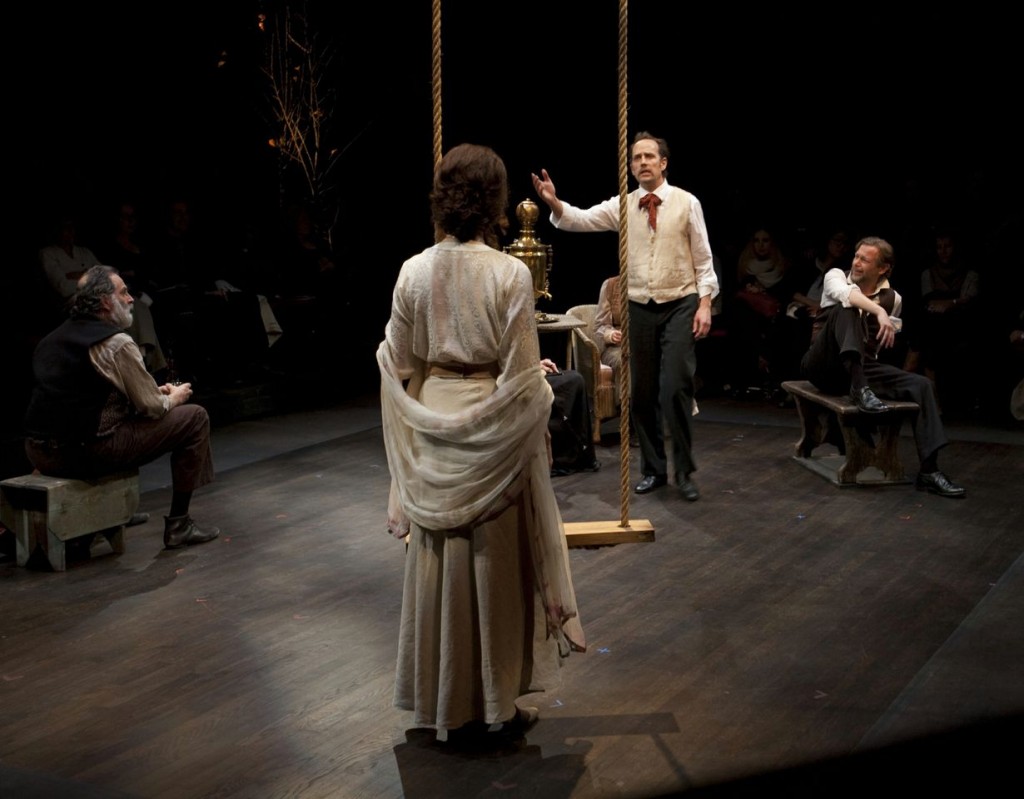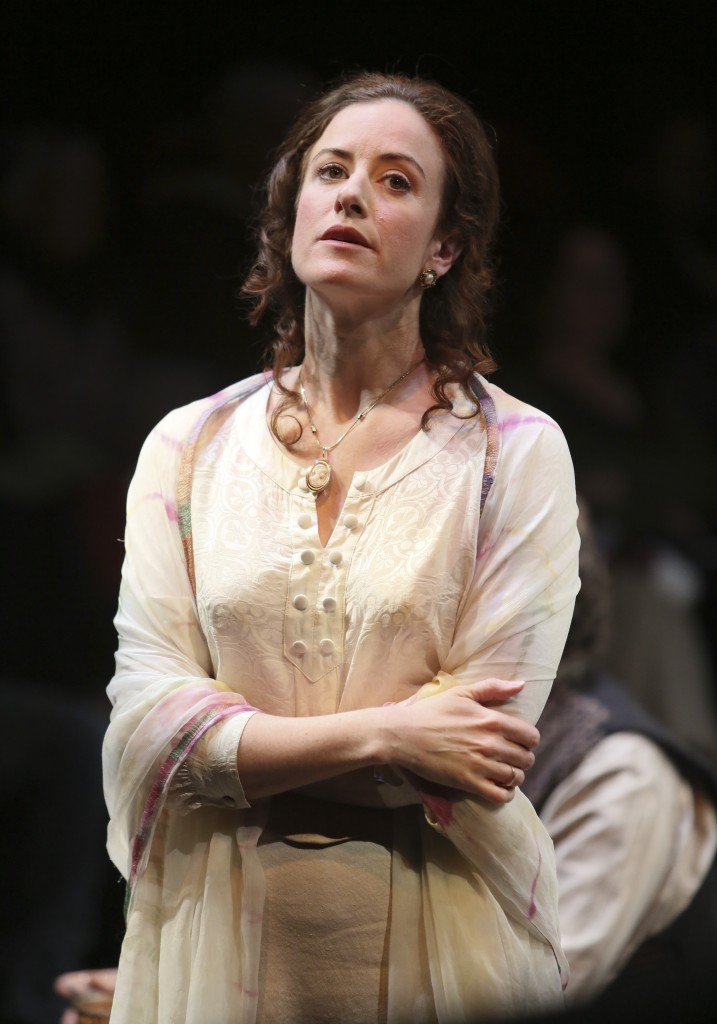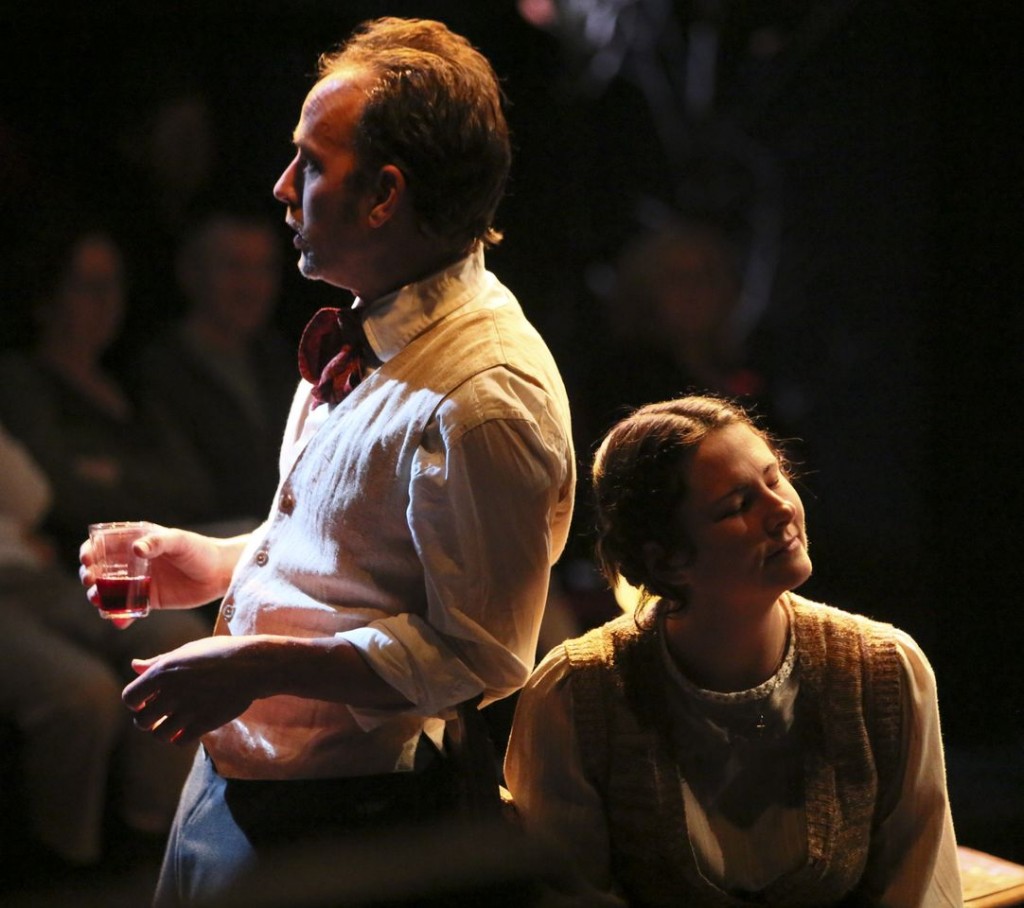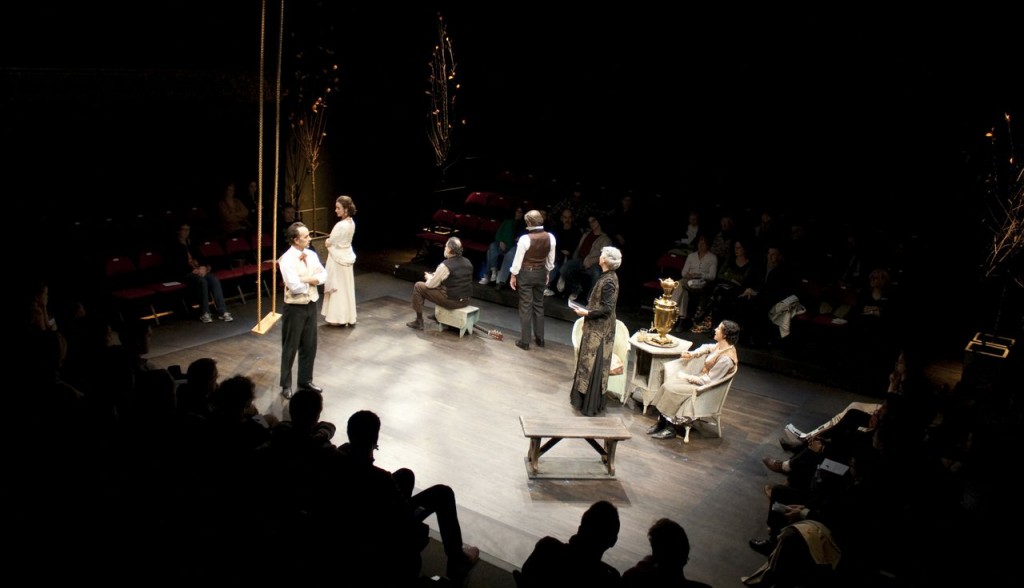
Credit: Tim Matheson
At The Cultch until January 18
604-251-1363/thecultch.com
Posted January 4, 2014
Uncle Vanya is one of Anton Chekhov’s funniest plays and John Wright, directing for Blackbird Theatre, captures all the humour he can find in it. While the descriptor ‘Chekhovian’ has come to suggest ennui bordering on despair, Chekhov wrote many farcical short stories before turning to drama so he was no stranger to funny business. Many directors favour ‘Chekhovian’ over funny – hence the prevailing misunderstanding that the plays are dreary. Chekhov himself was surprised to discover audiences in tears and accused Moscow Art Theatre’s director Konstantin Stanislavski of turning his characters into “crybabies.”
For a play written in 1899, Uncle Vanya feels very contemporary partly because of the fervent environmentalism of Astrov, a character whose concerns for the vanishing Russian forests mirrored Chekhov’s own.
But even more modern is Chekhov’s exploration of the human condition with all its longing for love, for life, for fulfillment coupled with ineptitude and failure to communicate. While the playwright invites us to laugh at human frailty, he treats his characters with generosity, never with condemnation.

Credit: Tim Matheson
In Uncle Vanya, Professor Serebryakov’s country estate is being managed by his daughter Sonya and his brother-in-law Vanya (Sonya’s uncle) while he and Yelena, his much younger, second wife, wife live the good life in Moscow. At the beginning of the play, Serebryakov and Yelena are visiting and plan, possibly, to stay on; declining revenue from the estate is making it difficult for them to remain in the capital. Yelena, who married Serebryakov because, she says, “he’s a scholar and famous”, is bored beyond endurance. Vanya, a bachelor who has given his life to maintaining the estate, is smitten with her, as is Astrov, the local doctor. Sonya, hard working and plain, is in love with Astrov but incapable of telling him. Completing the list of characters are Marina (an old housekeeper), Madame Voynitsky (Vanya’s mother) and Telyegin, an impoverished landowner and hanger-on.
While director Wright gets the humour right, his approach to Vanya gives the character more gumption than was possibly intended. Anthony F. Ingram’s Vanya is almost forceful, although to be fair, after each outburst, he backs wearily down. A usual reading of the character is more teddy bear, more pathetically resigned, more “Ah, well, it doesn’t matter.”
Luisa Jojic, dressed in white and ivory in contrast to Sonya’s beige, brown and grey, makes a beautiful Yelena. Graceful and girlish, Jojic captures the desperation of a character locked in marriage to a pompous pedant; it’s probable that Yelena will take a lover but will it be Astrov?
A real cry-baby is Sonya and Cherise Clarke sheds many tears. In his stage direction, Chekhov now and again says Sonya is crying but in this production, the tap seldom gets turned off. Very attractive Clarke is transformed into a plain country girl in loose-fitting, drab garments whose very posture – head thrust awkwardly forward and wringing hands – conveys Sonya’s complete lack of confidence.

Credit: Tim Matheson
Appropriately self-important is Duncan Fraser as Serebryakov, at times almost apoplectic; wise and motherly is Mary Black as Marina; silly and foolish is Stephen Aberle’s Telyegin; and primly proper is Donna White’s Madam Voynitsky.
Robert Moloney is outstanding as Astrov, a country doctor with a drinking problem. Moloney makes Astrov’s frustration obvious while keeping the character just short of despairing; Moloney strikes the perfect balance.
Uncle Vanya concludes with a long, fervent monologue by Sonya which, if you can get past how ridiculous it is, you might find sad. She blithers on about her afterlife – and Vanya’s – that will be “bright, and beautiful and lovely”; that is, happiness deferred beyond the grave. Pie in the sky when you die.
This production – performed in the round – is intimate and, while exploring stasis and ennui, is neither static nor boring. Designed by Marti Wright, it’s a handsome production of one of the great dramatic masterpieces.

Credit: Tim Matheson

